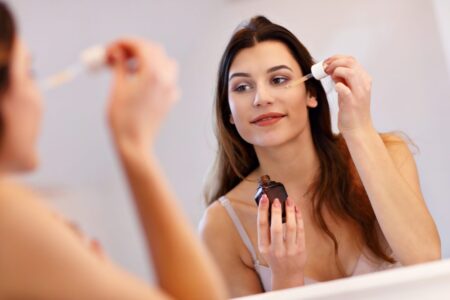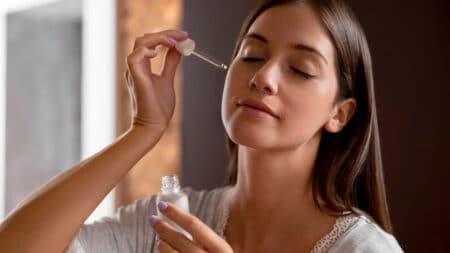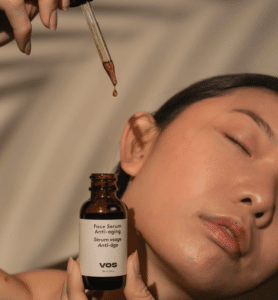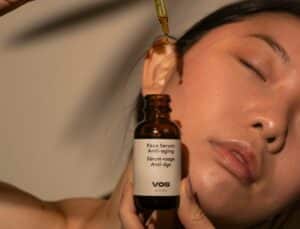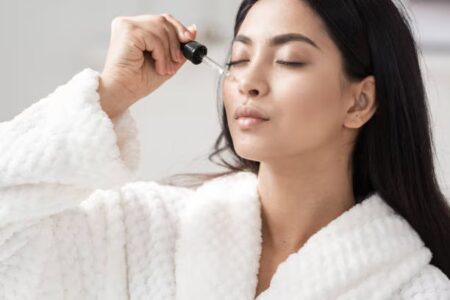Teenagers today are more aware than ever about skincare and product marketing have led many to wonder if serums are suitable for younger skin. Serums are concentrated formulations designed to address specific skin concerns, but they are often associated with adult skincare. For teenagers, the question is not only whether serums can be used, but also which types are appropriate, safe, and effective for their age group.
This guide explores whether teenagers should use serums, what ingredients to look for, potential risks, and how to incorporate them into a balanced skincare routine.
Understanding Teenage Skin
Teen skin is unique because it undergoes significant hormonal changes during puberty. This can lead to:
- Increased oil production
- Frequent breakouts
- Enlarged pores
- Occasional dryness or sensitivity
- Uneven texture due to acne or hormonal fluctuations
The primary goal of a teenage skincare routine should be to maintain skin health, address immediate concerns like acne or dryness, and avoid overloading the skin with strong active ingredients that may cause irritation.
What Are Serums?
Serums are lightweight skincare products formulated with a high concentration of active ingredients. They are designed to penetrate deeper into the skin compared to creams or lotions. While moisturizers hydrate and protect the skin barrier, serums target specific concerns, such as:
- Acne and blemishes
- Dullness and uneven tone
- Dryness and dehydration
- Early signs of skin damage
Can Teenagers Safely Use Serums?
Yes, teenagers can use serums, but with caution. Not all serums are suitable for teenage skin, and product selection should depend on skin type, skin concerns, and sensitivity level.
When serums may be appropriate for teenagers:
- Persistent breakouts that require targeted treatment
- Visible dryness or flaking
- Uneven skin tone from past blemishes
- Mild sun damage or dullness
When to avoid serums:
- If the skin is generally healthy without ongoing issues
- If the product contains high-strength actives not suitable for younger skin
- If the skin shows signs of irritation or sensitivity after use

Choosing the Right Serum for Teen Skin
- For Acne-Prone Skin
If breakouts are a concern, look for serums containing:
- Niacinamide: Helps reduce inflammation and control oil production.
- Salicylic Acid: Gently exfoliates inside pores to prevent blockages.
- For Dry or Dehydrated Skin
Hydration-focused serums can help maintain balance:
- Hyaluronic Acid: Attracts and retains moisture.
- Glycerin: Strengthens the skin’s hydration barrier.
- For Uneven Tone and Dullness
Mild brightening agents can even out skin tone without being too harsh:
- Vitamin C (Low Concentration): Supports a healthy glow and defends against environmental stress.
- Licorice Extract: Gently brightens without irritation.
Ingredients Teenagers Should Avoid in Serums
Not all active ingredients are suitable for teenage skin. High-strength formulations can cause more harm than good. Avoid:
- Strong Retinoids: Potent anti-aging forms of Vitamin A can be too aggressive for young skin.
- High-Percentage Acids (e.g., 20% AHA Peels): Can cause sensitivity and barrier damage.
- Hydroquinone: A skin-lightening agent that should only be used under medical supervision.
How to Add a Serum to a Teenage Skincare Routine
Step 1: Start with the Basics
Before introducing a serum, a teenager should have a consistent routine that includes:
- Gentle Cleanser (morning and night)
- Moisturizer (suitable for skin type)
- Sunscreen (SPF 30 or higher, daily)
Step 2: Patch Test First
Always test a new serum on a small area of skin before applying it to the entire face. Wait 24–48 hours to check for reactions.
Step 3: Apply Correctly
- Use a small amount — serums are concentrated, so more product is not better.
- Apply after cleansing and before moisturizing.
- Use once a day at first, preferably in the evening, unless otherwise directed.
Step 4: Monitor Skin Response
If redness, burning, or worsening breakouts occur, discontinue use and switch back to a simpler routine.
Final Thoughts
Teenagers can use serums as part of a skincare routine if the products are chosen carefully and introduced gradually. The focus should remain on maintaining skin health, preventing damage, and avoiding unnecessary high-strength ingredients. With proper guidance and consistency, serums can help address specific concerns like acne, dryness, or uneven tone, while supporting long-term skin health.

